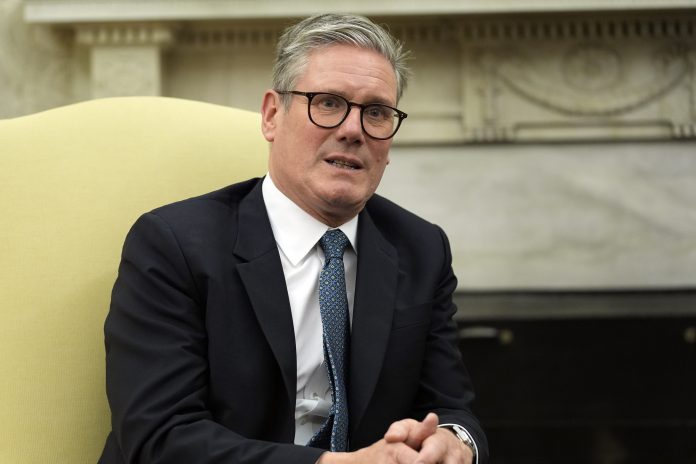In Keir Starmer’s inaugural speech as U.K. prime minister, he declared, “The work of change begins immediately.” Starmer, elected after a landslide victory on July 4, pledged to “rebuild” a country that voted overwhelmingly for a change in direction amidst widespread public dissatisfaction with deteriorating public services and a faltering economy.
As the new government tackles massive challenges, six key issues have emerged as immediate priorities for Prime Minister Starmer, as Politoco writes.
Immigration
Starmer has already scrapped his Tory predecessor Rishi Sunak’s controversial immigration policy of deporting asylum seekers to Rwanda. This policy, recently cemented into law despite numerous legal challenges, cost British taxpayers hundreds of millions of pounds without a single deportation.
At his first press conference after entering No. 10 Downing Street, Starmer said, “The Rwanda scheme was dead and buried before it started” and noted it had “never been a deterrent” to migrants as it would only ever have deported “less than 1 percent” of those crossing the English Channel on small boats.
However, the issue has gained urgency due to the significant number of Brits who voted for Nigel Farage’s anti-immigration Reform UK party, which came third in last Thursday’s election. Former Labour PM Tony Blair urged Starmer to address the issue promptly to stem the rise of right-wing populism, suggesting the introduction of digital ID cards.
Labour has pledged to curb small boat crossings by launching a new border security command, expected to be established in the coming days as Home Secretary Yvette Cooper appoints its commander. A Border Security Bill, featuring in Starmer’s first King’s Speech on July 17, will grant authorities new counterterrorism powers to tackle organized crime and people-smuggling.
NHS Strikes
Health Secretary Wes Streeting delivered a stark message to the health service, urging officials to view the NHS as “broken.” Streeting spoke to the British Medical Association (BMA) following Labour’s election victory, expressing his desire to restart talks to end a long-running pay dispute with junior doctors demanding a 35 percent pay rise to offset 15 years of below-inflation increases.
While Starmer has stated his government will not meet the BMA’s terms, he promised “grown-up politics” to resolve issues and restore NHS functionality. The prime minister’s team has already discussed how to deliver an additional 40,000 appointments, scans, and operations weekly with two NHS trusts.
Recognizing the importance of NHS reform, Starmer may recruit former health secretary Alan Milburn to help reduce waiting lists.
Prisons Crisis
The prison system in England and Wales is nearing capacity, with 87,453 out of 88,864 spaces occupied. This crisis was identified before the election by Starmer’s chief of staff, Sue Gray, as an immediate problem Labour would need to address.
Labour plans to maintain the previous Conservative government’s early-release scheme to ease overcrowding and revamp planning laws to expedite the construction of new prisons. Additionally, Starmer has promised to review sentencing.
James Timpson, a businessman and critic of prison efficacy, was appointed as prisons minister. Starmer partially supported Timpson’s views, acknowledging the issue of high reoffending rates.
While Labour’s sentencing review details are yet to be outlined, balancing reducing reoffending with maintaining a tough stance on law and order will be challenging.
Planning Reform
Planning system reform will be a central focus of the King’s Speech, with Starmer promising to rebuild Britain “brick by brick.” Labour aims to expedite major infrastructure projects by redefining “nationally significant” developments and rewriting national policy statements to prevent local authorities from blocking development.
Labour’s manifesto includes a commitment to building 1.5 million new homes over the next parliament, utilizing brownfield sites and “grey belt” land.
Despite historical opposition to planning liberalization, Labour’s significant majority in the House of Commons and its election platform of promoting construction may enable radical change.
Relations with Nations and Regions
Starmer has embarked on a tour of Britain’s devolved nations to seek a “reset” in relations with Scotland, Wales, and Northern Ireland. He aims to establish better cooperation with the first ministers and address challenges across the United Kingdom.
In Scotland, Starmer seeks a constructive relationship with the Scottish National Party administration, despite tensions over taxes on fossil-fuel companies and transgender rights. In Wales, Labour faces pressure to address NHS issues. In Northern Ireland, Labour plans to scrap the Conservatives’ Legacy Act and reduce trade barriers created by Brexit.
Starmer will also meet metro mayors across England to discuss greater regional devolution, a key item in the King’s Speech. However, addressing local government finance remains a critical issue.
EU Relations
Starmer intends to reset relations with the European Union after years of post-Brexit tension. In a call with German Chancellor Olaf Scholz, Starmer expressed a desire for “greater economic cooperation,” while a call with French President Emmanuel Macron covered “shared priorities, including migration and the economy.”
Foreign Secretary David Lammy, in his first overseas visit to Berlin, emphasized resetting relationships with European allies. European Commission President Ursula von der Leyen echoed these sentiments, expressing a desire to strengthen cooperation.
High on the agenda is negotiating a veterinary agreement with the EU to smooth trade and reduce border friction. Irish Taoiseach Simon Harris indicated the EU’s openness to discussing an overhaul of the post-Brexit trading relationship.


